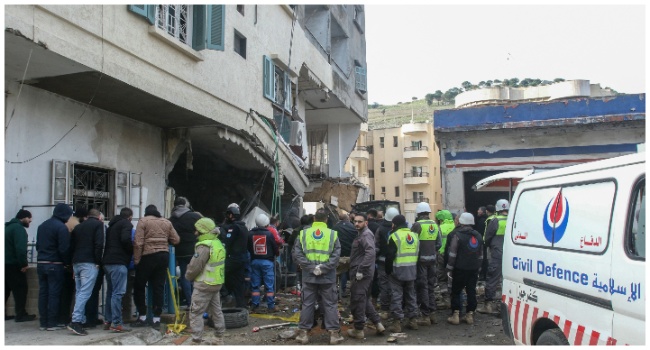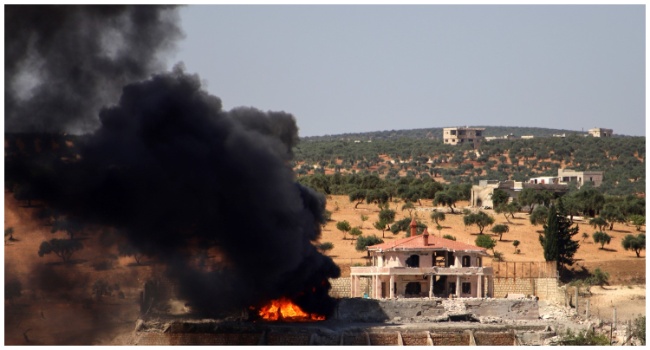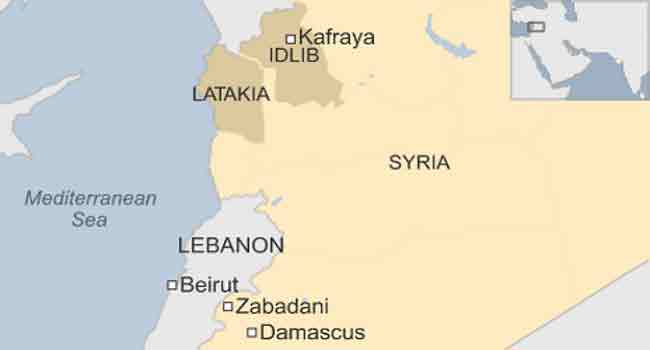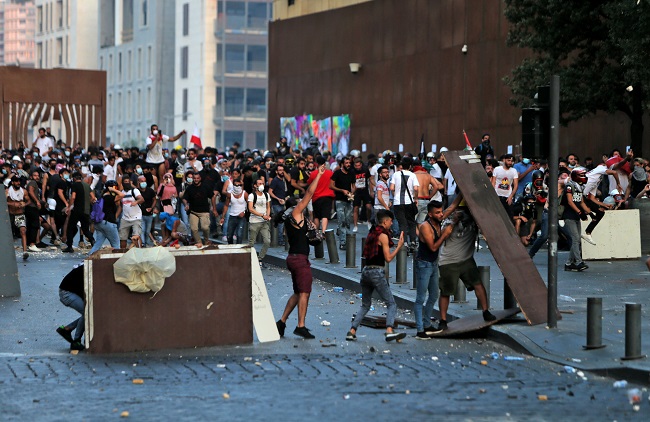
As thousands of Lebanese stood solemnly facing Beirut port on Wednesday to honour lost relatives and friends, their minute of silence was soon followed by wailing sirens and revolutionary slogans.
Even as candles were being lit and the names of those killed by last year’s monster blast read out, protesters a few hundred yards (metres) away tried to force a barrier leading to parliament.
Marches, concerts, prayers, protests, flags, vigils and statues: the cacophony that gripped central Beirut reflected how torn many were on the anniversary of Lebanon’s worst peacetime tragedy.
While some remained haunted by the unfathomable loss and destruction that the August 4 port explosion wreaked last year, others saw their revolutionary fervour reignited.
The chants of “thawra, thawra” (revolution, revolution) had not been shared by such a large crowd on the streets in months despite Lebanon’s spectacular financial and social collapse.
The sun setting on the Mediterranean, a bright red shipwreck and the gutted grain silos whose gloomy silhouette has become an emblem of the wounded city provided a striking background for the official ceremony.
Victims’ families sat on neat white plastic chairs, cradling pictures of their slain relatives, as Lebanon’s Maronite patriarch conducted a mass shortly after 18:07 — the exact time at which the explosion ripped through the city.
Sari Majdalani was busy in the kitchen of a nearby restaurant when disaster struck at that time last year. He escaped unharmed and has found a new job as a cook but morale is low.
“I try to lie to myself and pretend that everything will be alright. But right now, I don’t believe there’s any hope,” the young man said.
A far cry from the state funeral mood that cloaked the blast site and its surroundings, scenes reminiscent of an October 2019 protest movement that had kindled nationwide hope were playing out.

Bare-chested young men tried to scale a razor-wire-topped barrier blocking access to parliament, for many the seat of blame for the blast and the rest of the country’s woes.
Baton-wielding security forces responded to stone-throwing with tear gas and pushed back dozens of protesters even as the Maronite patriarch, wearing his tall white mitre, continued his homily.
Praying and rioting
Meanwhile, hundreds gathered on Martyrs’ Square, which is located between the two sites and was the central hub for weeks of protests that rattled Lebanon’s reviled leadership nearly two years ago.
For many Lebanese, almost as traumatising as the deadly explosion itself has been the lack of justice that followed and the political elite’s attempts to dodge it.
Several victims’ organisations had warned that their anger had only grown more intense over the past year and signalled the anniversary should send a clear message they would not let the blast go unpunished.
As the praying and rioting continued into dusk, it was hard to tell which current would win the day, leaving those in the middle wondering where to go.
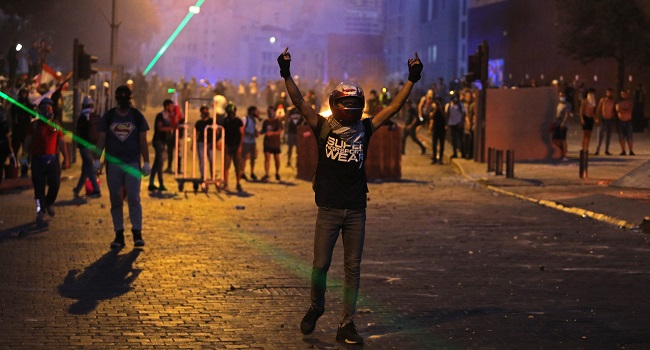
But for Nour, a 19-year-old high school girl, the only way is to abandon Lebanon.
“There is no hope in sight. I don’t want to leave this country but if nothing changes, I will leave when I finish my studies.”


